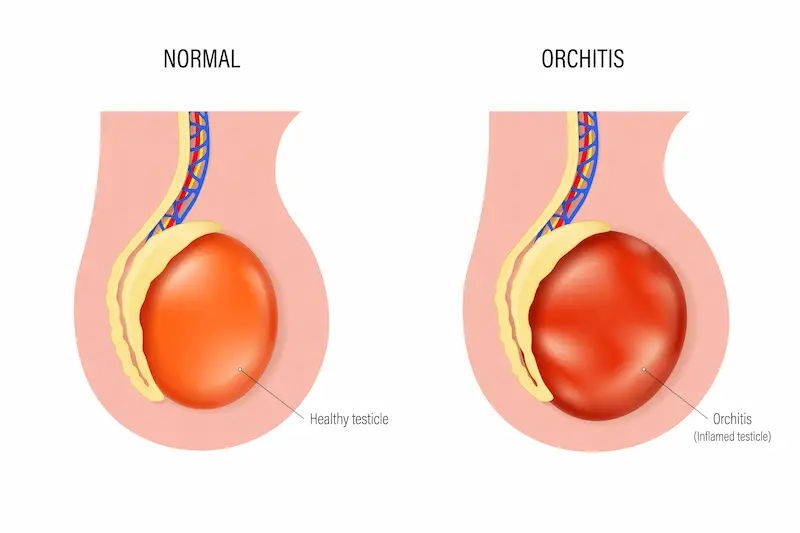Information About the Thyroid Gland
Learn all about the thyroid gland; its role in regulating metabolism, heart rate, and mood; common disorders like hypothyroidism and hyperthyroidism; symptoms to watch for; and tips to keep your thyroid healthy.

Written by Dr. Vasanthasree Nair
Reviewed by Dr. Rohinipriyanka Pondugula MBBS
Last updated on 21st Aug, 2025
_0.webp?tr=q-80,f-webp,w-350,dpr-2,c-at_max 700w)
Introduction
The thyroid gland is a small, butterfly-shaped organ located in your neck, just below your Adam’s apple. Despite its small size, it plays a huge role in keeping your body functioning properly. If your thyroid isn’t working as it should, it can affect your energy levels, weight, mood, and overall health.
In this article, we’ll break down everything you need to know about the thyroid gland—what it does, common problems, symptoms to watch for, and how to keep it healthy.
What Does the Thyroid Gland Do?
Your thyroid gland produces hormones that help regulate many important functions in your body, including:
Metabolism (how your body uses energy)
Heart rate
Body temperature
Digestion
Mood and brain function
Muscle strength
The two main thyroid hormones are:
1. Thyroxine (T4) – The primary hormone released by the thyroid.
2. Triiodothyronine (T3) – The active form that affects your cells.
Your thyroid works under the control of the pituitary gland in your brain, which releases Thyroid-Stimulating Hormone (TSH) to signal when more or fewer thyroid hormones are needed.
Get Your Symptoms Checked now
Common Thyroid Disorders
When the thyroid produces too much or too little hormone, it can lead to health problems. The most common thyroid disorders are:
1. Hypothyroidism (Underactive Thyroid)
What happens? The thyroid doesn’t make enough hormones.
Common causes:
Hashimoto’s disease (an autoimmune disorder)
Iodine deficiency
Thyroid surgery or radiation treatment
Symptoms:
Fatigue and sluggishness
Weight gain
Feeling cold often
Dry skin and hair
Depression
Constipation
2. Hyperthyroidism (Overactive Thyroid)
What happens? The thyroid produces too much hormone.
Common causes:
Graves’ disease (an autoimmune disorder)
Thyroid nodules (lumps that produce extra hormones)
Thyroiditis (inflammation of the thyroid)
Symptoms:
Weight loss despite eating normally
Rapid or irregular heartbeat
Anxiety and irritability
Sweating and heat sensitivity
Tremors in hands
Trouble sleeping
3. Thyroid Nodules & Goiter
Thyroid nodules are lumps that form in the thyroid. Most are harmless, but some can affect hormone levels or even be cancerous.
Goiter is an enlarged thyroid, often due to iodine deficiency or autoimmune disease.
How to Keep Your Thyroid Healthy
While some thyroid disorders are genetic or autoimmune, you can take steps to support your thyroid health:
1. Eat a Thyroid-Friendly Diet
Iodine-rich foods (seafood, dairy, iodized salt) – Essential for thyroid hormone production.
Selenium & Zinc (nuts, eggs, legumes) – Help convert T4 to active T3.
Avoid excessive soy and cruciferous veggies (like cabbage and broccoli in large amounts) if you have hypothyroidism, as they may interfere with hormone absorption.
2. Manage Stress
Chronic stress can disrupt thyroid function. Practices like yoga, meditation, and deep breathing can help.
3. Get Regular Check-ups
If you have a family history of thyroid disease or symptoms, get your TSH, T3, and T4 levels checked.
4. Avoid Smoking & Limit Alcohol
Both can negatively affect thyroid function.
5. Exercise Regularly
Physical activity helps regulate metabolism and supports overall thyroid health.
When to See a Doctor?
If you experience persistent symptoms like unexplained weight changes, fatigue, mood swings, or heart rate irregularities, consult a doctor. A simple blood test can check your thyroid levels.
If needed, your doctor may recommend:
Medication (for hypothyroidism or hyperthyroidism)
Radioactive iodine therapy (for hyperthyroidism)
Surgery (in rare cases of large nodules or cancer)
Need Help? Apollo 24|7 is Here for You
If you suspect a thyroid issue or need a check-up, Apollo 24|7 makes it easy to:
Book a thyroid test from home
Consult an endocrinologist online
Get personalized advice on managing thyroid health
Early detection and treatment can make a big difference in keeping your thyroid and your overall health in balance.
Final Thoughts
Your thyroid may be small, but it has a big impact on your well-being. By understanding how it works, recognizing symptoms early, and making healthy lifestyle choices, you can keep your thyroid functioning smoothly. If you have concerns, don’t hesitate to reach out to a healthcare provider; your health is worth it
Consult Top Specialists for Personalised Tips
Consult Top Specialists for Personalised Tips

Dr. Mainak Baksi
General Practitioner
13 Years • MBBS , MD (MPH)
Howrah
Mainak Baksi Clinic, Howrah
(50+ Patients)

Dr. Rajib Ghose
General Practitioner
25 Years • MBBS
East Midnapore
VIVEKANANDA SEBA SADAN, East Midnapore

Dr. S. K. Ghosh
General Practitioner
42 Years • MBBS
South Dumdum
Physique, South Dumdum

Dr S Lakshmi Narasimha Reddy
General Practitioner
9 Years • MBBS
Kondapur
Singam's Kids Clinic, Kondapur

Dr. Avinash Pasuparthy
General Practitioner
5 Years • MBBS
Visakhapatnam
Apollo Clinic Vizag, Visakhapatnam





